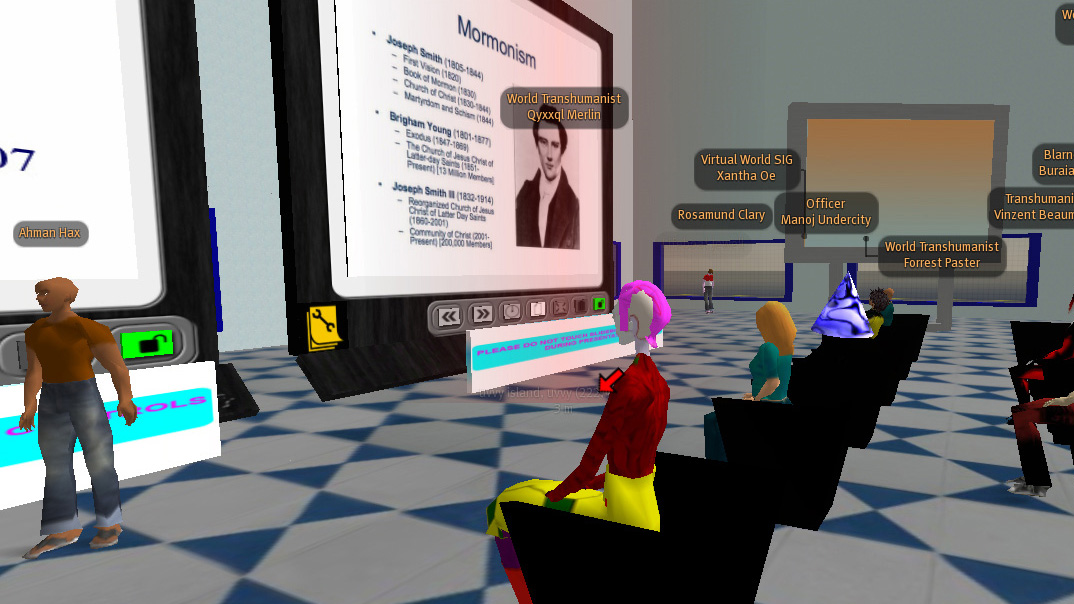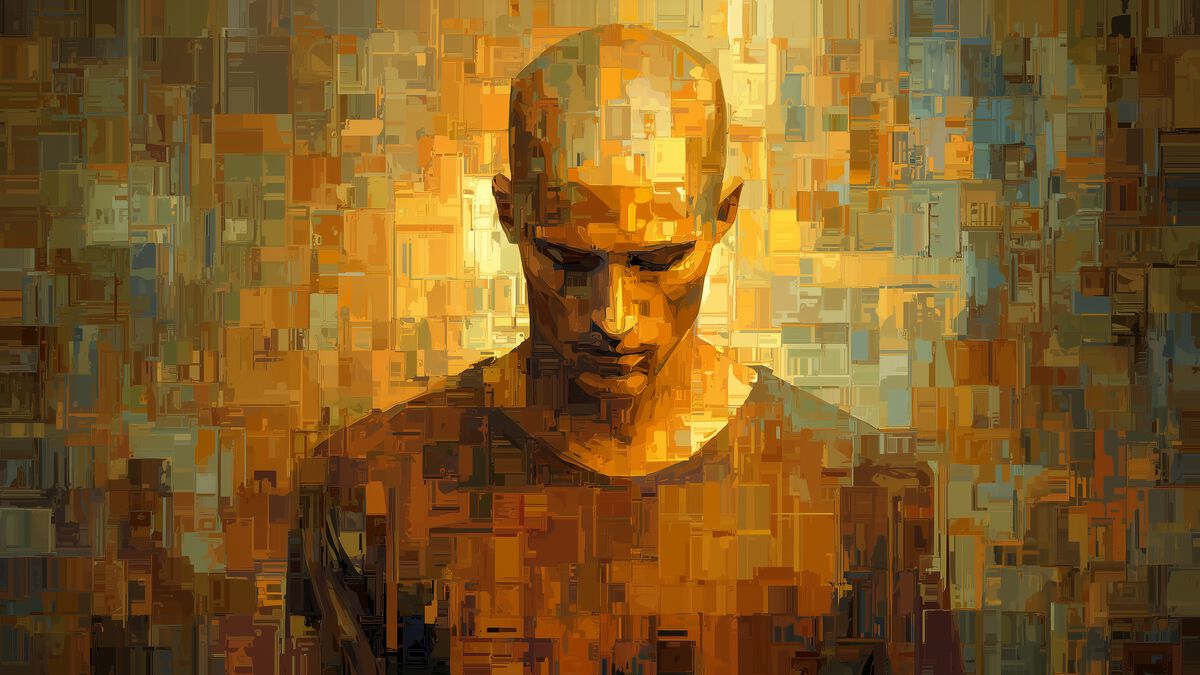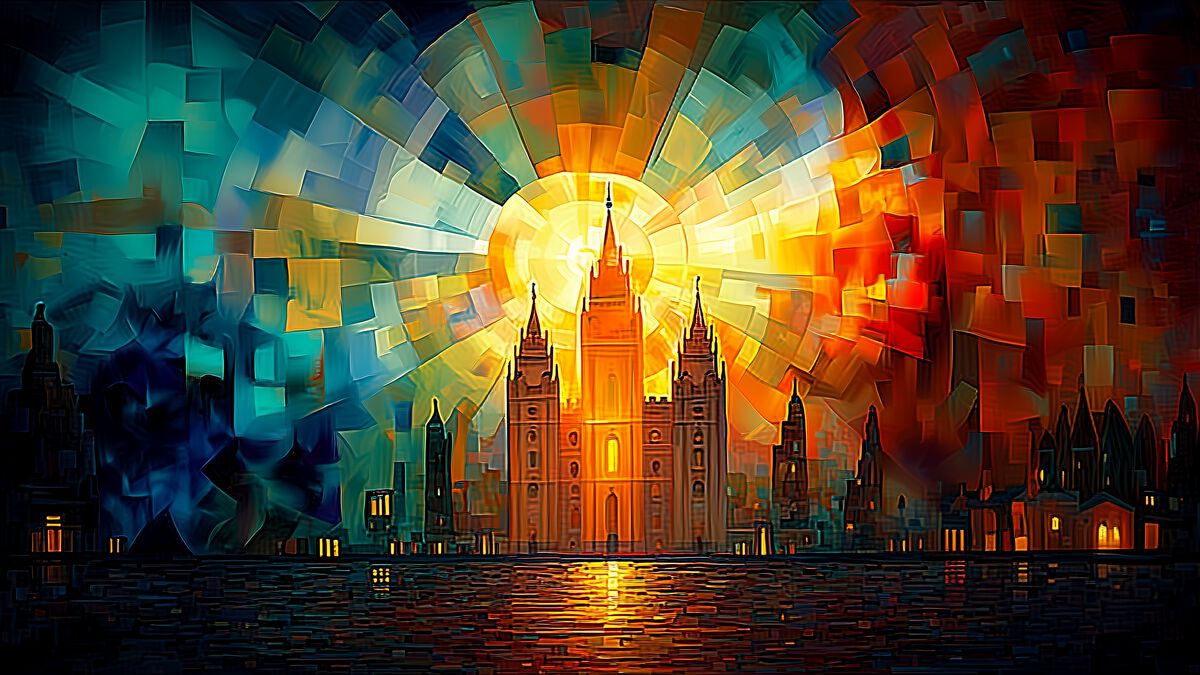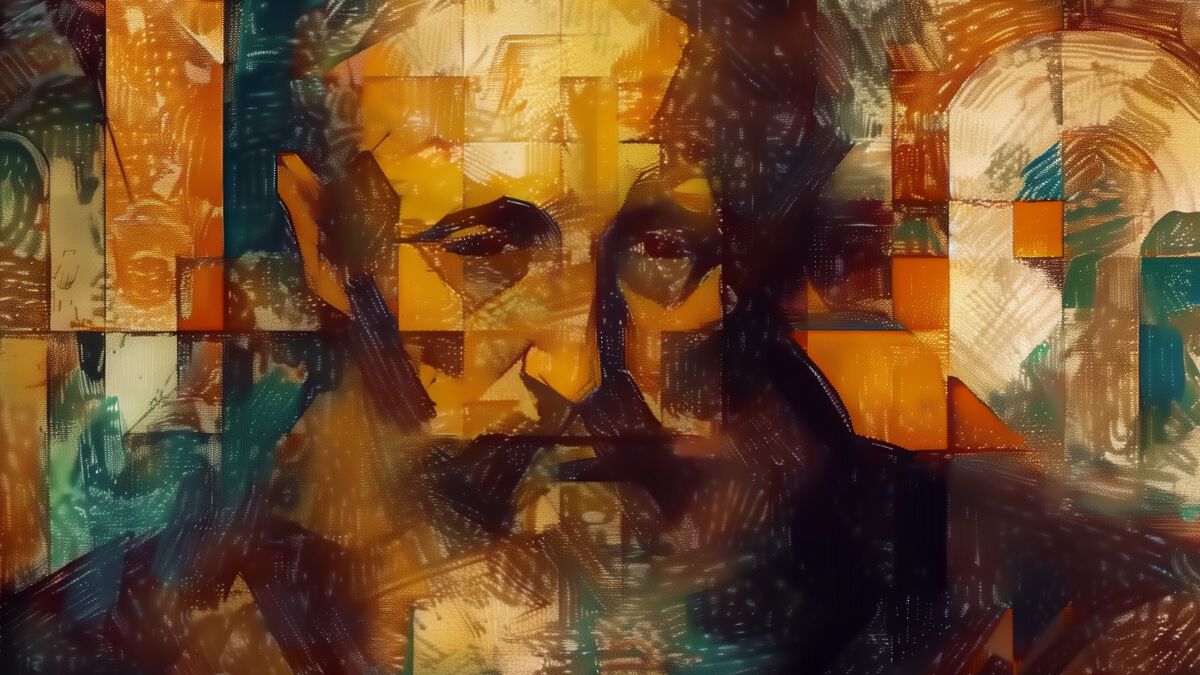Contemplating Posthumanity in Second Life
Lincoln Cannon
18 May 2007 (updated 3 January 2026)
I recently presented Mormon Transhumanism to an audience in the virtual world of Second Life, using my avatar, Ahman Hax. The occasion was a seminar on Transhumanism and religion. After the seminar, an attendee at the conference, Qyxxql Merlin, asked to interview me via email. I happily accepted of course.
Qyxxql Merlin: “What is the Mormon Transhumanists’ position towards those who become Posthuman but do not adopt the Christ Consciousness as part of their moral fabric?”
Here are two responses to your question:
1) One may adopt a Christ consciousness without calling it “Christ.”
There is an insightful story in the Book of Mormon that illustrates this idea. As the story goes, there was a king that was impressed by the service that a missionary provided to the kingdom. And the king wanted to know more about the ideas that inspired the missionary. The missionary asked whether the king believed in God.
The king replied that he didn’t know anything about God. The missionary responded by asking whether the king believed in a “Great Spirit.” The king replied in the affirmative, and the missionary quickly affirmed: “That is God.”
This story is reflected in various aspects of Mormon thought and practice. Joseph Smith claimed that he would force no one to believe as him, except by persuasion, and that if persuasion did not work with a person then he would build that person up in her own way.
Likewise, missionaries of the LDS Church are taught to emphasize commonalities between Mormon beliefs and those of the persons they teach, instead of arguing over who is right. The current leader of the LDS Church, Gordon Hinckley, has also taught that persons converting to Mormonism should bring with them all of the good they have received from other ideologies, and add to that what Mormonism can provide.
2) As Joseph Smith described it, we look forward to worlds without end, each adapted to the desires and wills of its inhabitants.
Joseph taught of a class of worlds, as innumerable and varying as the stars, in which the inhabitants would not embrace a Christ consciousness, yet would enjoy glory far beyond that which we now experience. In Mormon cosmology, there is no permanent hell, except perhaps for the small number of persons that would seek constantly to create hell for themselves. To emphasize the pragmatism of this idea, Joseph once claimed, in response to critics, that if he and the Mormons are sent to hell then they will make a heaven of it.
That said, Mormons do understand faith in Christ (who by any other name is as divinely and eternally charitable) to be essential to enabling more advanced classes of worlds.

Qyxxql Merlin: “Hello again, I forgot to ask you as a Mormon Transhumanist, where do you personally draw the line between the right-to-choose (self-determination) and societal oppression?
“For example, I know that some Mormons (perhaps all), oppose the act of homosexuality and probably beastiality too but what if the Posthuman chooses to switch (or even neutralize) gender and perhaps even species of their own free will? Do they lose their right to Godhood in the Posthuman era or is it only as not-yet-Gods that we are denied the right to choose such lifestyles?”
I believe dynamic balance is required between the wills of individuals and the laws of their communities, neither being more important than the other. This reflects Mormon soteriology, which inter-relates individual and communal salvation.
Most Mormons do oppose homosexual relations, generally because they are perceived as being incompatible with or a poor environment for families, which Mormons consider to be the strongest foundation for community. Personally, I do not oppose homosexual relations to the extent that they are committed and consensual, with no neglect, abuse, promiscuity, or infidelity involved (which are precisely the same qualifications I put on appropriate heterosexual relations).
The LDS Church, of which I am a member, does oppose homosexual acts of all sorts and will excommunicate any member that engages in them, although it does not oppose homosexual inclinations, so long as they are not acted upon. Obviously, in this case, I am not representative of most Mormons, but I am certainly not alone. Given that this is an emotionally charged issue, I try not to focus on it, choosing instead to direct my energy toward matters that will take us all forward to a day when perhaps we can look on these matters in clearer light.
Regarding bestiality, every Mormon I know opposes it. Personally, my opposition arises from the same reasoning that leads me to oppose sexual relations between adult humans and their children. As I see it, the psychological consequences of human sexuality are such that the practice should be reserved as an intimate expression between persons of similar spiritual magnitude, otherwise it quickly becomes oppressive.
I can imagine future paradigms in which my practical views, and those of other Mormons, regarding sex and gender issues could change dramatically. As Joseph taught, morality adapts to context, and new revelation will never cease. Our theology and ethics are not absolutist, even if some Mormons choose so to behave in regards to various matters.
Qyxxql Merlin: “It seems that Transfiguration inplies that that the Son becomes the Father (God) or at least Father-like in an infinite cycle of progression. What I have learned about Mormonism so far is that the image of the heavenly Father is actually in our image … by that, did Joseph Smith mean that any Mormon Posthuman would in fact still look completely Humanoid but with Godlike powers?
“I noticed for example that your avatar in SL looked quite human and not so alien in its appearance … is this to express the humanoid appearance of the Fatherly avatar? Would a Posthuman with Mormonesque beliefs in Christ and Mormon morality be considered saved if the image of the Posthuman did not look at all humanoid?”
Most Mormons believe that God is and will be humanoid in physical appearance. However, I believe a persuasive case, using Mormon scripture and tradition, can be made for keeping our minds open to additional possibilities. Joseph Smith repeatedly taught that God has always interacted with humanity according to our understanding, complete with its various limitations. Moreover, Joseph taught that humanity commonly sees God without comprehending.
Such teachings, coupled with the pervasive Mormon expectation of eternally continuing revelation, should remind us, as the Bible puts it, that eternal life is to know God – and if we assume dogmatically to know God exhaustively then we are merely damning ourselves from learning more.
Qyxxql Merlin: “… another great answer about the persuasive case of the possible post-humanoid nature of God … I was comtemplating more about the idea of God the Father being made in ‘our image’ … maybe you are thinking along the same lines as me when thinking about what ‘our image’ actually is?
“Perhaps you are hinting in your persuasive case that ‘our image’ could be the mirror-image of all of multidimensional selves that exist within the endless worlds of creation? This would allow both God and ourselves who wish to become as God to choose the kind of image we would wish according to our will in this practical dimension, correct?
“For example, I consider my avatar lives (yes, I have more than one) to be the more godlike/ideal aspects of my RL self … in a sense, I consider it a reflection of my higher moral self (well, at least as Qyxxql) … I also personally believe in astral counterparts who are my higher selves in other dimensions … so, if I pursue Godhood in the physical/realm, I can also choose to mold my mundane humanoid self into these higher manifestations of my outward appearance or ‘image,’ right?”
Qyxxql, I am personally open to the ideas you express above. My primary concern is that our choices in such matters (indeed, in all matters) do not oppress others, except to the extent of countering their oppression. On the one hand, that sounds simple. But, on the other hand, recognition of and proper response to oppression is a complex issue – infinitely complex, I suspect.



